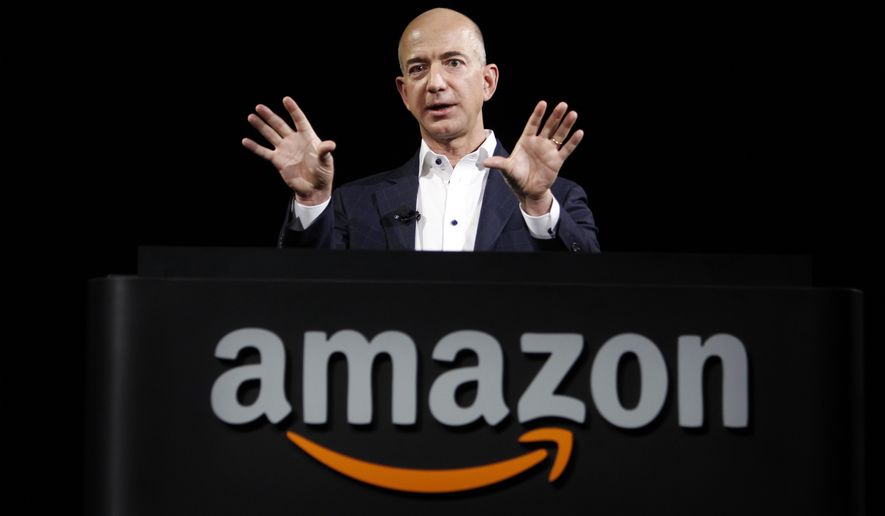OPINION:
Dozens of members of Congress joined forces to request Amazon CEO Jeff Bezos explain the recent “Rekognition” facial recognition flap that misidentified 28 members of Congress as suspected criminals.
Seems valid. Bezos does have some questions to answer.
It’s the least he can do after his artificial intelligence software mistook the faces of more than two dozen lawmakers for mugshots in police files. The American Civil Liberties Union first found the discrepancy; Reps. John Lewis and Tom Garrett, contacted by The Washington Times for response, put out a bipartisan statement, along with Rep. Jimmy Gomez, criticizing the technology. Several other affected members of Congress contacted for comment by The Washington Times failed to respond.
“The results of the ACLU’s test of Amazon’s Rekognition software are deeply troubling,” Lewis said, in the joint statement. “As a society, we need technology to help resolve human problems, not to add to the mountain of injustices presently facing of people of color in this country.”
Amazon does tell Rekognition users that its technology carries an error rate of up to 20 percent.
But the problem is this: Rekognition is reportedly already weaving its way into police departments in Florida and Oregon. A 20 percent chance of wrongful identification there bring a whole heap of trouble to innocent citizens.
Garrett, a Republican, said this in a statement: “Modern technology is amazing and yields previously unthinkable possibilities, but where this technology may be imperfect or encroach on traditional expectations of privacy and due process, we must always err on the side of caution. This is the case here.”
So what’s the answer?
“This technology isn’t ready for prime time,” Garrett said, “and the risks to Americans’ basic liberties outweigh the benefits. … This is why today I have joined with my congressional colleagues … in calling on Jeff Bezos and the developers of Amazon Rekognition to confer with advocates and experts on civil liberties.”
The letter, signed by 25 lawmakers, requested an “immediate meeting” with Bezos to discuss how to fix “the defects of this technology.”
That’s fair. Fix it, and fix it fast.
Facial recognition technology does hold the potential for police, intelligence officials and national security agents to secure the country and identify — quickly — suspects and criminals.
But as the errors of Rekognition show, the technology also has the potential to cause great harm.
It only seems common sense to put constitutional rights, privacy protections and the civil rights of innocents above the investor and company race for profit. After all, facial recognition technology is here to stay. We might as well make sure it’s at least, say, 99 percent accurate before sending it off to mass market.
After all, if this is what Rekognition does to members of Congress, just think of what it might do to the average lesser-known Jane Q. and John D. citizen.
• Cheryl Chumley can be reached at cchumley@washingtontimes.com or on Twitter, @ckchumley.




Please read our comment policy before commenting.